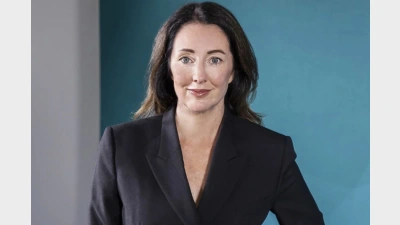(March-2003) How funds avoid poor planning advice
A report, recently released by the Australian Securities and Investment Commission and the Australian Consumer Association, claims that more than half of all financial plans prepared by advisers are ‘borderline’ or worse. It has led to calls for urgent reform of the financial planning industry, and according to some super funds, justifies moves to establish their own financial planning arms.
Local Government Superannuation Scheme (LGSS) and Energy Industries Superannuation Scheme (EISS) CEO Brett Westbrook says the report reinforces his view that “a number of financial planners are salesmen first and professionals second”.
“The reason we made the decision to set up our own planning subsidiary was that we wanted to be able to control the level of advice and service to our members. And we weren’t confident that we would be able to negotiate acceptable terms with an external financial planning organisation,” he says.
Telstra Super CEO Terry McCredden says his fund decided to offer members financial planning through Telstra Super Financial Planning for the same reasons. “We’ve been aware of those issues [included in the report] for a number of years and that’s why last year we set up our own financial planning subsidiary company to offer services to our members,” he says.
Planners for both Future Plus and Telstra are salaried, which removes the incentive presented by commissions.
Some funds which use external planners have found that keeping a close eye on the situation also helps.
Statewide Superannuation Trust CEO Frances Magill says: “It’s always been important for super funds to monitor who is giving advice. From our perspective, we track which member goes to which planner and the result of that. We monitor when [members] are rolling out, and who they are rolling out to, and if a planner can’t come up with a logical explanation for why that has happened, then we will not use them again. To date, there haven’t been any instances where we’ve had to do this.”
Statewide has a dealer’s licence, but with 120,000 members, its resources cannot always stretch to meet member needs.
VicSuper, which has a partial dealer’s licence allowing it to advise members on its own internal products, also recommends external planners at Industry Fund Services (IFS) to members.
A VicSuper spokesperson notes: “If a member came back to us and said they were disappointed with the service they had received then obviously we’d be concerned.”
IFS executive chair Garry Weaven adds: “We have repeatedly warned that the combination of a compulsory superannuation system and agent’s commissions is a very dangerous cocktail and any approach to choice of superannuation fund should ensure that there is a rational regulatory regime, that sales commissions are removed from the process, and that it is made absolutely clear that it is illegal for employers to receive commission payments for directing their employees’ superannuation to a particular fund.”
The Financial Planning Association (FPA), however, has denied that serious reform of the financial planning industry is needed. “The FPA strongly objects to the unsubstantiated statements made by the ACA which go beyond a factual and objective presentation of the results,” says FPA CEO Ken Breakspear.
However, Bridgeport Advisers and Asset Managers executive director Robert MC Brown says: “It’s a pity that the financial planning industry is so defensive when they’ve got a lot to answer for and they need to address the issues in a mature and constructive way.
“The pressure is on because investment markets have been so poor over the past few years and people are saying ‘what value am I actually getting from my financial advisor?’ For the bulk of advisors that’s a difficult question to answer.”
Democrats spokesperson on superannuation John Cherry warns that the combination of a low level of consumer understanding about superannuation and finance, and the lack of disclosure and independence among planners will be a disaster if superannuation choice-of-fund is introduced.
“Investors and retirees need to be confident that any financial planning advice they receive is independent and of a high quality. Life savings shouldn’t be risked because of poor industry standards,” he says.
This sentiment is echoed by Senator Nick Sherry, the shadow minister for retirement incomes and savings, who says: “When so-called choice is introduced, millions of Australians will need to turn to financial planners for advice because of the complexity of superannuation products. We now know that a significant proportion of those planners cannot be relied upon to do the right thing for consumers. This will reduce retirement incomes through a combination of poor products and higher charges, particularly commissions.”
Recommended for you
AMP’s chief economist has unveiled a wish list for the Australian government’s Economic Reform Roundtable.
Australian retirees could increase their projected annual incomes between 3 and 51 per cent by incorporating personal and household data into their retirement income strategies, according to new research.
The best interests duty and new class of adviser didn't make the cut for the pre-election DBFO draft bill; however, ASFA has used its submission to outline what it wants to see from the final package.
The peak body stressed that the proposed financial advice reforms should “pass as soon as possible” and has thrown its weight behind super funds providing a greater level of advice.











